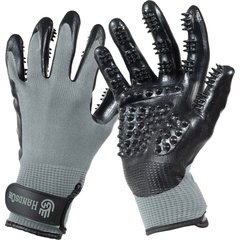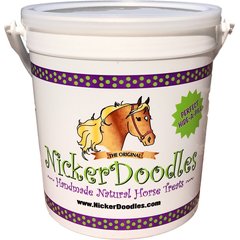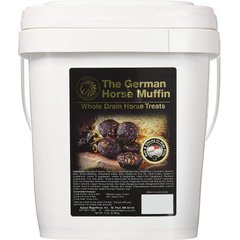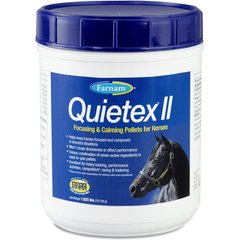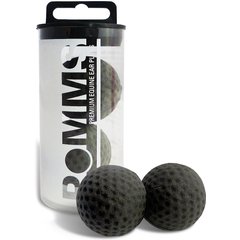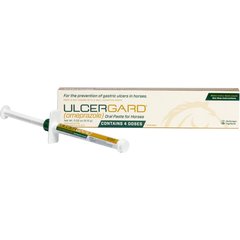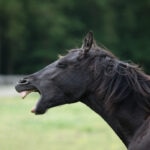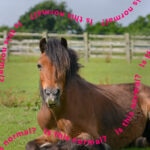Horse Sounds and What They Mean
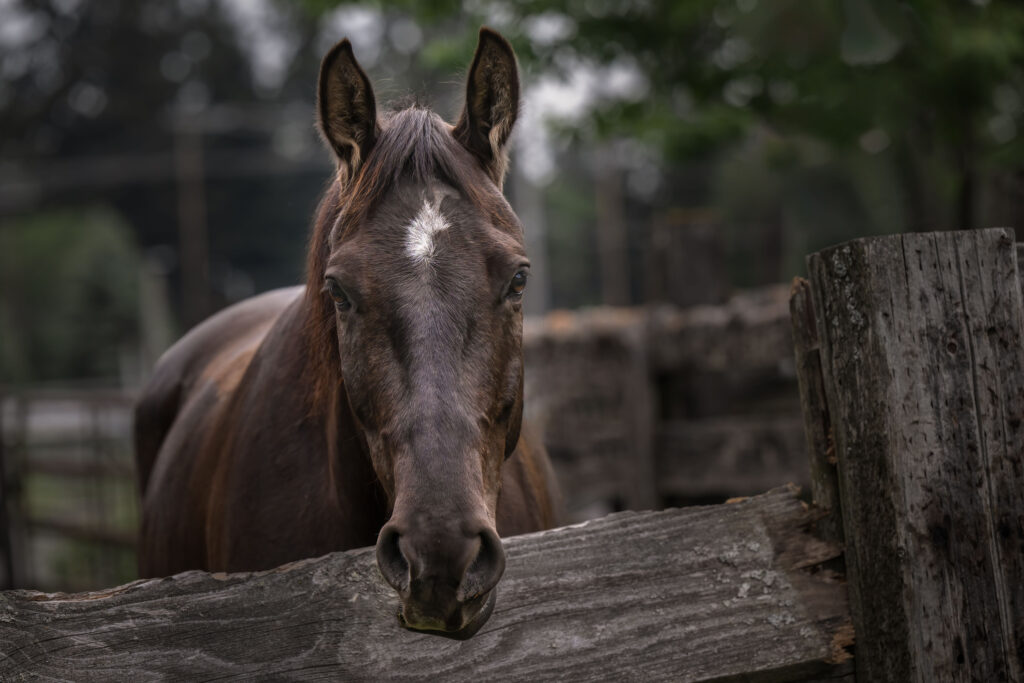
Photo by Wirestock/iStock / Getty Images Plus via Getty Images
From a loud neigh to a soft sigh, horse sounds convey a wide range of emotions. Equines use body language as their primary means of communication, but horses also make many sounds.
Knowing how to interpret various sounds that horses make can help you understand your own horse’s needs.
Common Horse Sounds and What They Mean
You might hear these common horse sounds around the barn or pasture:
Neigh or Whinny
A neigh or whinny is a loud, prolonged, high-pitched, slightly staccato vocalization, usually delivered with the head raised, nostrils flared, and a rigid posture. Horses in Western movies neigh so frequently, viewers might think this is the only way how horses “talk!”
Neighing is used as a way for a horse to contact others from far away, since it carries across long distances.
Neighing and whinnying are frequently associated with separation anxiety between herd-mates. Horses may also neigh loudly when they arrive in a new place, or when they are expecting a meal.
Nicker
Nickering is a soft, low-pitched, pulsating sound from both the throat and nose, often with the head lowered and muzzle outstretched. You might notice a horse’s nostrils pulsing in time with the vocalization.
Nickering is the sound a horse makes to say “yes, come closer.” Mares nicker to their foals, and bonded horses may nicker when reunited after a separation. Many horses nicker when approached by their favorite human, especially if they’re carrying food!
Squeal
A horse squeal is a sharp, high-pitched, shrill sound. Squealing horses often accompany this noise with a rapidly swishing tail, pinned ears, and stomping or striking with the front feet. When horses squeal, they’re trying to say “back off.”
Squeals may be heard during the introduction process between horses who are meeting for the first time.
Scream
Sometimes horses neigh so loudly that it sounds more like a scream. This is a distress signal, expressing an emotional state described by neuroscientist Jaak Panskepp as “panic/grief.” This feeling is triggered by sudden social disconnection, especially in herd animals like horses.
Only experienced equestrians should handle a screaming horse. A human can easily be knocked to the ground by a horse who whirls suddenly in a state of panic while screaming. A screaming horse may be too distracted by their panic that they become unaware of their surroundings.
Sigh
Horses sigh just like humans do, by exhaling deeply with a slow huffing sound. In horses, a sigh simply signals a release of tension. For instance, horses may sigh after passing a scary obstacle.
Horses may also sigh when they are relaxed, perhaps while being groomed on the crossties or while settling in for a nap.
Snort
Snorting—a short, sharp noise produced by forcefully exhaling through the nostrils—might sound like a horse clearing dust from their nose. Surprisingly, snorts may be associated with well-being in horses. One study found that horses snort more often when they experience lower levels of stress.
Blow
A horse “blows” by raising their head, flaring their nostrils widely, and exhaling with great force. Horses may blow loudly to scare off potential predators, or when expelling pent-up energy after a period of confinement.
Groan
Horses can make noises that sound very much like human groans and grunts. It’s normal for sleeping horses to occasionally groan. Some horses also groan when they are enjoying a good scratch, from either a human or a horse friend.
Prolonged groaning, or groaning only when a certain area of the body is touched, may be signs of pain. If groans are accompanied by signs of colic, contact your veterinarian.
What Sound Does a Happy Horse Make?
Happy horses might not make any sounds at all. Signs of relaxation in horses can include:
- Lowered head
- Soft lips and nostrils
- Lack of tension in the muscles around the eyes
- Ears at rest rather than sharply pricked forward
More vocal horses might share their happiness by snorting softly or nickering. Some horses even express appreciation for pleasurable grooming with loud grunts. Using grooming gloves may elicit this happy sound from itchy horses, especially during shedding season.
Recommended Product
Many horses nicker for a treat—this response is common enough that one popular brand, NickerDoodles, is named for it! Offering a sweet horse treat when you arrive at the barn might encourage your horse to greet you with a nicker.
Recommended Products
To avoid creating a pushy horse, provide treats in a horse feed pan on the ground, and cue a safe behavior like “take two steps back” or “turn your head away from me” before delivering the treat.
Recommended Product
What Sound Does a Horse Make When Stressed?
Like happy horses, stressed horses might not make any noises. Tense muscles, a high-alert body posture, and tight wrinkles around the nose, lips, and eyes can all indicate stress or fear.
When stressed horses do make noise, the sounds they make can vary according to the source of stress. Horses stressed by separation from their herd often neigh or scream. Horses encountering a scary object or potential predator may blow sharply several times in a row. Stallions or stallion-like geldings stressed by the presence of a potential rival may snort, squeal, or grunt.
The best long-term remedy for a stressed horse is to remove the acute stressor, then use science-based training methods to slowly increase the horse’s stress tolerance over time. In temporary stressful situations like hospitalization or horse shows, horse calming supplements help some horses stay more relaxed.
Recommended Product
Horses stressed by loud noises at shows often benefit from horse ear plugs, like the Equine Healthcare Premium Horse Ear Plugs, to protect their sensitive hearing. And if your veterinarian thinks a horse’s stress may be caused by ulcer pain, they may advise trying ulcer treatment for horses, like Ulcergard.
Recommended Products
Overall, though, most stressed horses could benefit greatly from a few simple things: friends, freedom, and forage. In other words, keep horses in a herd with lots of room to move and feed them a forage-based diet, or get as close to that environment as is possible for your situation.
This content was medically reviewed by Kaela Schraer, DVM.
